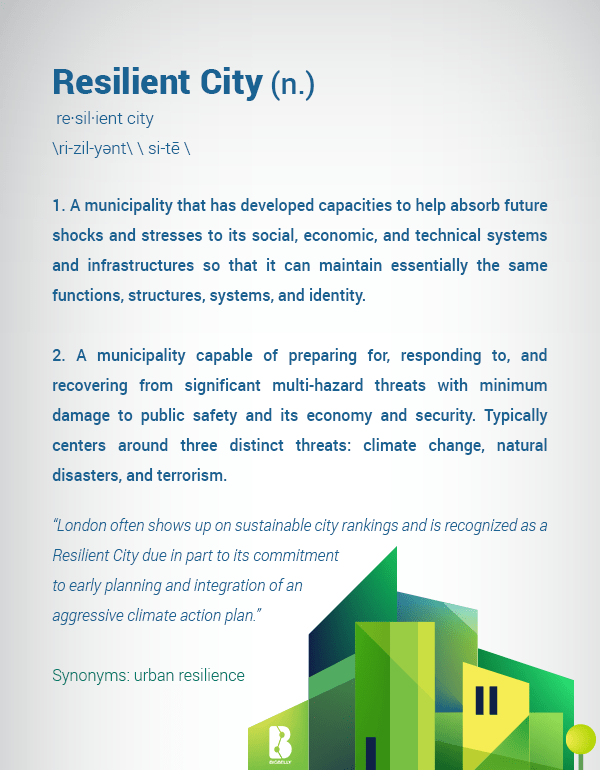The world is an ever evolving ecosystem. In some instances, change advances cities and towns, economies, governments, lives, natural resources, and the environment, while occasionally change drains these stakeholders, assets, and resources. Around the globe, municipalities are exploring strategies for developing greater capacities for urban resilience to future impacts – climate change, high unemployment, energy scarcity, political and economic disruption, overtaxed public services & resources, etc.
Resilient Cities are those that aggressively and proactively plan and design strategies that will help them develop the necessary capacity to meet tomorrow’s challenges, including shocks and stresses to their infrastructure systems. Cities are looking at ways to become more self-sufficient and energy efficient. Central to effective urban planning is the ability to facilitate the development of greater capacity for future proofing.

Cities need strategies that allow them to respond and adapt economic, social, and physical stresses associated with population growth, climate change, and natural resource/energy scarcity. We believe that urban intelligence will greatly enhance Resilient City planning. Big data analytics can snapshot today’s activities and benchmarks, track change over time, and project future occurrences. Armed with such knowledge city officials and administrators can develop, adopt, and leverage new paradigms, technologies, services, and economic models for future planning.



